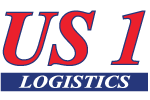Ever wondered if a freight broker agent job could be your ticket to financial freedom? Spoiler alert: It can be—if you know the ropes. But, as with any commission-based career, the income potential isn’t guaranteed. So, just how much can you earn, and what factors will determine your take-home pay?
In this article, we’ll break down the earning potential of commission-based freight broker agents. Think of it like a puzzle—your income depends on the pieces you put together: clients, loads, carriers, and smart strategy. By the end, you’ll have a clear picture of what it takes to maximize earnings in this field.
What’s the Deal with Commission-Based Earnings?
Commission-based freight brokers work without a fixed salary, earning a percentage of the profit from each load they broker. This structure has its risks, but the upside? There’s no cap. The more you move, the more you make.
There’s no cap. The more you move, the more you make.
The Numbers: What to Expect
Most freight broker agents earn 20-50% of the total profit per load. This profit is the difference between what the shipper pays and what the carrier charges to transport the freight. For instance, if a load generates a $500 profit, and you’re on a 40% commission split, you pocket $200.
Annual Income Range:
- Entry-level agents: $40,000–$60,000
- Experienced agents: $80,000–$120,000
- Top performers: $150,000+
These numbers depend heavily on your ability to find steady business. Some agents even cross the six-figure mark within a couple of years.
1. How Freight Type and Market Conditions Influence Earnings
When it comes to freight, not all loads are created equal. Some cargo—like refrigerated goods or oversized machinery—commands higher shipping rates, leading to fatter profits for agents.
Market conditions also play a big role. In high-demand periods (e.g., the holiday season), capacity tightens, driving up rates. Conversely, during slower seasons, competition increases, squeezing profits.
Pro Tip: Diversify the types of loads you broker. Handling a mix of dry goods, perishables, and specialized freight can help smooth out income fluctuations throughout the year.
2. Carrier Relationships: Your Income’s Best Friend
A freight agent without solid carrier relationships is like a ship without a rudder. Reliable carriers with competitive rates help you secure more business—and happy customers mean repeat deals.
Building trust with carriers also means better negotiations. Agents who build rapport can offer lower rates to shippers while still maintaining decent profits.
“In this business, relationships are everything. If you’re not building trust with your carriers, you’ll struggle,” says industry expert Chad Boblett, founder of the Rate Per Mile Masters group.
3. Customer Acquisition: The More Shippers, The Merrier
Your earnings as a commission-based freight broker agent are directly tied to the volume of business you manage—and that comes down to how many shippers you have in your portfolio. A diverse client base is essential because relying on just one or two major clients can leave you vulnerable. If they reduce their freight volumes, switch carriers, or face economic slowdowns, your income could take a serious hit.
On the flip side, signing a single big client—such as a retailer with nationwide distribution needs—can dramatically increase your earnings overnight. However, the real magic lies in having multiple small-to-medium clients who provide steady business, which helps maintain consistent income during lean periods. This diversification reduces risk, just like spreading investments across several stocks in a portfolio.
 How to Build a Strong Portfolio: The Secret to Growth
How to Build a Strong Portfolio: The Secret to Growth
Building a client list in freight brokerage isn’t a passive endeavor—it takes relentless effort. Cold-calling is a cornerstone of the industry, and though it may seem old-school, it’s still one of the most effective ways to find new shippers. Each call is a chance to uncover new freight needs, build relationships, and establish your reputation.
Additionally, modern freight agents are leveraging digital tools like LinkedIn, where they can connect directly with logistics managers, supply chain directors, and procurement officers. Networking events—such as trade shows, transportation expos, and industry meetups—can also open doors to new partnerships. When you combine these efforts with online marketing (like email campaigns or blog posts targeting potential shippers), you create multiple avenues for client acquisition.
Consistency and Persistence Pay Off
The key to growing your client base? Consistency. Building a steady stream of shippers isn’t about making one great call—it’s about showing up every day. You won’t land a new client on every attempt, but the cumulative effect of regular outreach compounds over time.
Think of it this way: If you reach out to five new prospects a day, that’s 25 new contacts a week—and over 1,300 prospects a year. Even if only 5% of those turn into paying clients, you’ve gained more than 65 new accounts. Some of those may start small, but over time, they could grow into your most profitable shippers.
Pro Tip: “Don’t get discouraged by a few no’s—your next call could be your biggest break. Persistence is what separates top agents from the rest,” says Brandon Scott, a veteran freight broker with over 10 years of experience.
Diversify Your Outreach Strategy
While cold-calling is essential, you should diversify your outreach methods to increase your chances of success. Some shippers respond better to emails or LinkedIn messages, while others prefer phone conversations. A multi-channel approach ensures you’re engaging potential clients in ways they find most comfortable.
To manage outreach efficiently, many agents use CRM tools (Customer Relationship Management) to track leads, follow-up dates, and client history. Tools like HubSpot, Zoho CRM, or Salesforce keep your outreach organized and ensure you don’t miss out on follow-ups, which are often where deals get closed.
Practical Tip: Build a Habit of Daily Outreach
Set a daily outreach goal—like calling five new prospects or sending 10 emails a day. It may seem like a small effort at first, but this habit can create a snowball effect. Over time, consistent outreach will lead to more meetings, more relationships, and more shippers in your portfolio.
Bonus Tip: Keep track of your outreach results to identify patterns. If you notice certain industries are more responsive, you can target them more strategically. Likewise, tracking when clients are most likely to respond (e.g., mid-week mornings) can improve your hit rate.
Expanding your client base isn’t just about landing one huge shipper—it’s about creating a pipeline of reliable business. The freight world is dynamic, and having a robust portfolio helps you ride out the inevitable ups and downs. Remember, every phone call or LinkedIn message is one step closer to your next deal, so stick with it. The shippers are out there—you just need to connect with them.
4. Commission Splits: What to Look For in Broker-Agent Agreements
The commission split between brokers and agents varies by company, typically ranging between 50/50 and 70/30 (with agents taking the lower share). Some companies offer higher commissions for top performers, but these arrangements may come with fewer perks or support services.
Before signing on with a brokerage, assess the support they provide—like access to load boards, software, and leads. Sometimes a slightly smaller commission is worth it if the brokerage offers valuable resources.
5. The Impact of Technology on Freight Broker Income
Technology has changed the freight game. With load boards, automated pricing tools, and transportation management systems (TMS), agents can book more loads faster  and manage them more efficiently.
and manage them more efficiently.
Stat to Know: A TMS can increase productivity by up to 30%, according to a report by FreightWaves. That’s more loads moved—and more money earned.
Some agents even specialize in using digital freight matching tools like DAT or Truckstop.com, which helps them find the best rates with just a few clicks.
6. Experience and Niche Specialization: The Income Multiplier
Just like in any profession, experience matters. Agents with a few years under their belt often develop specialized knowledge—whether it’s managing international shipping or coordinating complex oversized freight. This expertise allows them to charge higher margins.
If you carve out a niche, you can become the go-to person in that market, giving you a competitive edge. Whether it’s automotive logistics or retail supply chains, specialization can multiply your income.
Practical Tip: Start by focusing on one industry. Once you’ve mastered it, you can branch out to other niches.
7. Work-Life Balance: The Hidden Factor in Your Earnings
Commission-based jobs require a lot of hustle, especially in the beginning. Long hours chasing clients and monitoring loads are the norm for many freight agents. But smart agents learn to balance effort and efficiency to prevent burnout.
Some of the top brokers build systems—or even hire assistants—to take over routine tasks like tracking shipments or invoicing. This allows them to focus on what matters: securing more deals.
Conclusion: Unlock Your Earning Potential as a Freight Broker Agent
How much can you really earn as a commission-based freight broker agent? The truth is, the sky’s the limit—but your success depends on the effort you put in. Freight type, carrier relationships, client acquisition, and even your niche play a huge role in determining your income. With the right mix of hustle and strategy, six-figure earnings are within reach.
So, are you ready to jump into the fast lane of freight brokering? If you put in the time and master the trade, you can build a lucrative career. As the saying goes, “You get out what you put in.” Time to get moving!




Recent Comments